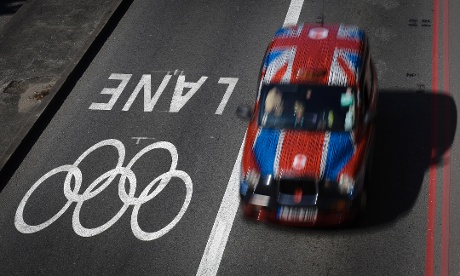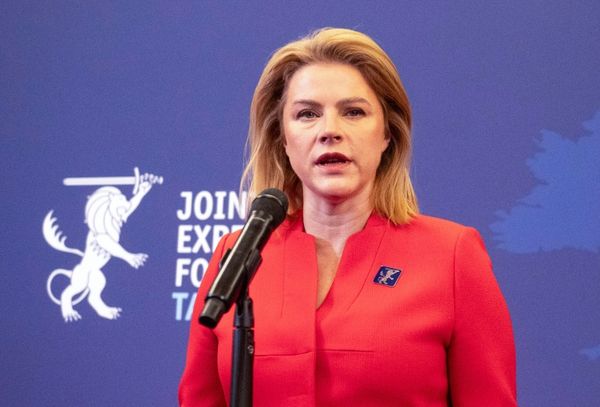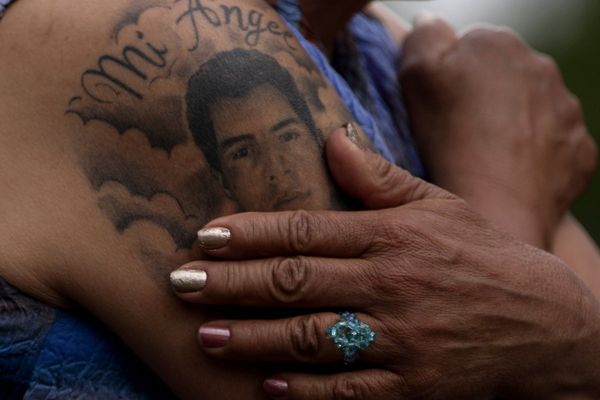
While Glasgow's Commonwealth games team has been soaking up the euphoria from the Olympics, it seems they have been absorbing the London games' experiences on security and transport.
So much so, that David Grevemberg, the Glasgow 2014 chief executive, is not only planning to have exclusive "Zil lanes" for athletes and officials on the city's roads and motorways, he's also pondering whether the armed forces could provide security.
The military presence at the Olympic venues – a last minute fix forced on the organisers by the calamitious failure by private security firm G4S to train enough staff - particularly impressed, Grevemberg said.
One of the things which has been so powerful is that the presence of the armed forces has instilled a real sense of confidence, comfort, professionalism, discipline and this welcoming environment that I think has impressed everyone.
And everyone I have talked to who has gone into the Olympics park and has passed through that security checkpoint, that has been welcomed by the British armed forces, has really just 'wow'.
In an interview with the Guardian last week, the day after returning from again visiting the London games, Grevemberg indicated that asking the military to help provide security at Glasgow 2014 was being considered:
I think that has to be determined post-London 2012 but certainly we've been very impressed with them. It does cost money. There is a price for that discipline. But all the way up to my chairman, Lord Smith, the experience we had just going through those checkpoints was world class.
Grevemberg added that the post-Olympics inquests into G4S's failures and other security issues would continue to influence Glasgow 2014 planning, but the armed forces and MoD too might well have their issues.
As the Guardian disclosed on Monday, senior military figures have warned it will take the armed forces up to two years to recover from the impact of suddenly deploying 18,000 military personnel to the Olympics – in other words, until July 2014. So even if Grevemberg did have the cash to pay for khaki and blue at the gates, he might not get it.
One thing Grevemberg is planning to introduce are exclusive Games' lanes on roads reserved solely for competitors and the "Commonwealth family" which will affect many major arterial routes around the main "clusters" of venues in the east end and west end, and around Hampden.
Branded "Zil lanes" in London after the former Soviet Union habit of reserving lanes for senior officials, that will include taking over lanes on the new M74 extension and the M8. It will mean lane closures and traffic diversions for the two weeks of the games, from 23 July to 4 August 2014.
They will be needed, he said, to guarantee that athletes, officials (and games sponsors) and the media can travel to competitions and training as fast and efficiently as possible. At the Atlanta Olympics, he said, traffic chaos meant some athletes failed to arrive at venues in time to compete. In London, errant motorists were hit by automatic fines of up to £130 per offence.
Glasgow 2014 is now building a traffic management and lane closure plan "which allows us to divert traffic to enable us to meet the needs of the Games while keeping the city running as easily as possible", he said. Grevemberg added:
It's part of our project. One of things which is important to realise about Olympic lanes is that first and foremost, they're there to get athletes and team officials, in the case of the Olympics that's about 17,000 people, as quickly as possible too and from the venues to ensure that athletes get an adequate amount of rest, to ensure they get that sanctuary where they need to rest and relax but also get as quickly to training and competition as possible. That's the primary reason, and that they're not late for competition.
Happily for Grevemberg, the Olympics lanes were far less controversial in London than many had feared but for those drivers who were caught out, hefty fines ensued: according to the Independent, there were 2,400 fines for illegally using them – worth £320,000 in total. For some Glaswegians, Glasgow 2014 may just be a little less the "friendly games" than they like.







